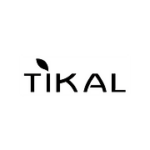Welcome to the evolving landscape of tech startups, where innovation is the name of the game and flexibility is key. Amidst this vibrant chaos, a new player has entered the arena: the Fractional CMO. This role, tailored for the digital age, brings a fresh perspective to traditional marketing leadership. Think of the Fractional CMO as a part-time chief, armed with a wealth of experience and an arsenal of digital tactics, ready to guide your startup through the ever-changing world of digital marketing. They’re the strategic partner you didn’t know you needed, offering high-caliber marketing insights without the long-term commitment of a full-time executive. As we unpack the role of the Fractional CMO, we’ll discover how they’re becoming an indispensable asset for agile startups looking to make a significant impact in the digital domain.

What is a Fractional CMO?
So, what exactly is a Fractional CMO? Imagine a traditional Chief Marketing Officer – the strategist, the brand builder, the customer whisperer. Now, reimagine this role, tailored for the fast-paced, budget-conscious world of tech startups. A Fractional CMO is essentially a CMO-on-demand. They offer their expertise on a part-time or contract basis, making top-tier marketing leadership accessible to startups that might not be ready or able to commit to a full-time executive.
Unlike a full-time CMO, who is deeply embedded in a company’s day-to-day operations, a Fractional CMO dips in and out, bringing a fresh, external perspective. They’re like seasoned navigators, charting a course through the tumultuous seas of digital marketing. With a repertoire that spans across various industries and market challenges, they offer strategic insights, craft bespoke marketing strategies, and help in implementing cutting-edge digital marketing techniques.
This approach allows startups to leverage years of experience without the overhead associated with a full-time position. Think of a Fractional CMO as a special ops expert in the marketing world: they parachute in, accomplish specific missions, and make a swift exit, leaving behind a trail of impactful strategies and measurable results.
The Rise of Fractional CMOs in the Tech Industry
The tech industry, known for its rapid innovation and growth, has recently witnessed the burgeoning trend of Fractional CMOs. This rise can be attributed to several factors that resonate deeply with the ethos of tech startups. Firstly, the digital age has democratized marketing, making it more accessible yet more complex. Startups require leaders who can navigate this complexity without adding significant overhead.
Secondly, the agile nature of startups often means that they operate in a dynamic, sometimes unpredictable environment. A Fractional CMO, with their flexible engagement model, fits perfectly into this landscape. They provide high-level strategic guidance when it’s most needed, adapting to the startup’s evolving requirements.
Moreover, tech startups, especially in their early stages, are typically resource-constrained. The idea of having a part-time executive allows these companies to harness expert-level marketing strategies at a fraction of the cost. This cost-effectiveness is a huge draw for startups looking to optimize their limited resources.
Finally, the diverse experiences of Fractional CMOs, who often work across various industries and company sizes, bring a breadth of knowledge and a fresh perspective. This diversity in thought and approach is particularly valuable in the tech industry, where innovation and disruption are the currency of success.
As tech startups continue to flourish and the market becomes increasingly competitive, the role of the Fractional CMO is set to become more integral. They are not just trendsetters but essential architects in shaping the marketing strategies of tomorrow’s leading tech companies.
Key Responsibilities of a Fractional CMO in the Digital Age
In the digital age, the responsibilities of a Fractional CMO are as diverse as they are critical. At their core, they are responsible for crafting and executing a marketing strategy that aligns with the startup’s business goals. This involves a deep understanding of digital channels and how to leverage them for maximum impact.
One of their primary responsibilities is brand development and management. Even in the tech world, where product and innovation take center stage, a strong brand is vital. The Fractional CMO helps in building a brand narrative that resonates with the target audience and differentiates the startup in a crowded marketplace.
Another key area is digital marketing and analytics. With digital channels constantly evolving, the Fractional CMO needs to stay ahead of trends, be it in social media, SEO, content marketing, or PPC campaigns. They must not only implement these strategies but also use analytics to gauge their effectiveness, making data-driven decisions to optimize the marketing efforts.
Customer engagement and retention strategies are also under their purview. In the digital age, engaging with customers and building lasting relationships is crucial. Fractional CMOs work on creating targeted communication strategies and loyalty programs that enhance customer experience and retention.
Additionally, they play a significant role in lead generation and sales enablement. By aligning marketing strategies with sales objectives, they ensure that the leads generated are qualified and more likely to convert, thereby directly impacting the startup’s revenue.
Lastly, a Fractional CMO often acts as a mentor to the in-house marketing team. They bring in best practices, train the team on the latest digital marketing tools and techniques, and help in setting up scalable marketing processes.
In sum, the role of a Fractional CMO in a tech startup is multifaceted and dynamic, addressing various facets of digital marketing while aligning closely with the startup’s strategic goals.
Benefits for Tech Startups
The incorporation of a Fractional CMO into a tech startup brings a multitude of benefits. Firstly, cost efficiency is a significant advantage. Startups can access senior marketing expertise without the financial burden of a full-time executive salary, making it a prudent choice for companies watching their burn rate.
Secondly, flexibility is key. Fractional CMOs offer a level of agility that aligns with the fast-paced environment of startups. They can ramp up or scale down their involvement based on the startup’s changing needs and growth stages, providing a custom-fit solution.
The breadth of experience and fresh perspective that Fractional CMOs bring is another invaluable asset. Having typically worked with multiple companies across different industries, they bring diverse strategies and innovative thinking to the table, often challenging the status quo and driving creativity.
Moreover, their focus on measurable results is crucial for startups where every dollar spent needs to account for growth. Fractional CMOs are adept at setting KPIs, tracking performance, and pivoting strategies based on data-driven insights, ensuring marketing efforts are closely tied to business outcomes.
Furthermore, they can significantly shorten the learning curve for startups. By implementing proven strategies and avoiding common pitfalls, they can accelerate the startup’s growth trajectory, helping them achieve their goals more rapidly.
Lastly, for startups that eventually aim to bring on a full-time CMO, a Fractional CMO can lay the groundwork, setting up processes, building the brand foundation, and creating a roadmap that a full-time successor can build upon.
In essence, a Fractional CMO offers a strategic partnership that aligns perfectly with the dynamic, growth-focused nature of tech startups.
Challenges and How to Overcome Them
While the benefits of a Fractional CMO are clear, there are challenges that tech startups may face. One of the primary challenges is alignment. Ensuring that the Fractional CMO fully understands and aligns with the startup’s vision, culture, and goals is critical. Overcoming this involves clear, upfront communication, and regular check-ins to ensure both parties remain on the same page.
Another challenge is the integration of the Fractional CMO with the existing team. As a part-time executive, the Fractional CMO may face initial resistance or a lack of cohesion with full-time team members. To mitigate this, it’s important to foster a culture of collaboration and respect, emphasizing the complementary role of the Fractional CMO to the existing team’s efforts.
Additionally, managing expectations can be tricky. Startups need to have realistic expectations about what can be achieved within the constraints of a part-time engagement. This requires setting clear objectives and key performance indicators from the outset.
To address these challenges, startups should look for Fractional CMOs with a proven track record in similar environments, prioritize open and ongoing communication, and establish clear, measurable goals for the engagement.
Success Stories
The efficacy of Fractional CMOs in tech startups is best illustrated through success stories. One notable example is a burgeoning tech startup that specialized in AI-powered solutions. By bringing in a Fractional CMO, they were able to refine their brand messaging, significantly improve their online presence, and double their lead generation within six months.
Another success story involves a SaaS startup struggling with customer acquisition. The Fractional CMO revamped their digital marketing strategy, focusing on targeted content marketing and SEO. This led to a 70% increase in organic traffic and a substantial boost in subscription rates.
These stories underscore the impact a skilled Fractional CMO can have, turning marketing strategies into tangible business results and accelerating growth for tech startups.
Conclusion
In conclusion, the role of a Fractional CMO in the digital age is not just a passing trend, but a strategic evolution in the marketing realm. For tech startups aiming to navigate the complex digital landscape efficiently, a Fractional CMO could be the game-changer they need.











